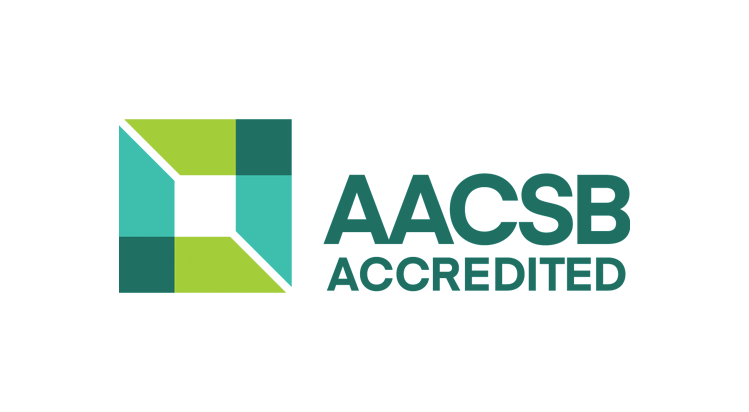Healthcare Management
MS
The Master of Science in Healthcare Management (MSHM) provides you with the knowledge and tools to help improve the quality and efficiency of healthcare delivery and become an agent for positive change. Professionals working in healthcare and those interested in influencing the field learn how to save time and money, improve quality of care, redesign organizational processes, and reduce implementation errors.
Throughout the program, you will strengthen your managerial skills, which you’ll be able to immediately apply to the workforce. You’ll also learn how to analyze and measure health systems' performance, improve processes and productivity, and use data to guide improvements and support patient care delivery.
Employment outlook
An aging population and a higher prevalence of chronic diseases will drive continued growth for employment in this profession well into the future. Graduates of this program are prepared to advance their careers and become organizational leaders, including within healthcare innovation companies and for pharmaceutical and medical device manufacturers. Graduates may also find employment with health systems providers and health insurance carriers.
Program requirements
The curriculum develops the operational and behavioral skills necessary for transforming the healthcare workplace into an efficient, effective, error-free, and empowered organization. The MSHM curriculum consists of a total of 30 credit hours:
- 8 required courses
- 2 elective courses or a Master’s Project or Master’s Thesis
Core courses focus on two areas:
- management of costs, quality, and error reduction
- development of leadership, motivation and collaborative skills
Required courses
- Students must complete 30 credits to graduate.
- 2 foundation courses are required for those who have not taken these courses or their equivalents before beginning the program. Foundation courses are not counted toward the degree.
- Students must take eight core courses, 4 of which have alternates. In addition, candidates must take 2 elective courses or carry out a master’s project or master’s thesis.
- Up to 6 credits may be transferred into the program at the time of admission or after enrolling in the program to satisfy elective course requirements.
- Course waivers depend on prior coursework and may be granted on a case-by-case basis.
ACT 650 Accounting for Decision Making
ACT 671 Strategic Cost Management or NUR 508 Healthcare Economics and Managing Healthcare Finances
MGT 671 Management of Organizational Change or MGT 673 Organization, Structure, and Process
MGT 677 Leading, Motivating, and Empowering Others or MGT 650 Advanced Organizational Behavior
MIS 675 Managing Projects for Healthcare
POM 651 Creating Value Through Operations Analysis
POM 679 Management of Healthcare Operations or NUR 520 U.S. Healthcare Delivery System
POM 684 Lean Operations in Health Care
Elective courses
You may choose two elective courses from the following, or alternatively, complete a master’s project or master’s thesis on a healthcare management topic of your choice.
FIN 650 Finance for Decision Making
MGT 659 Strategic Management
MIS 650 Information Technology Management
NUR 615 Organizational Behavior & Leadership in Healthcare
POM 681 Business Analytics and Data Mining
POM 683 Managing Supply Chains in Healthcare
POM 698 Master’s Project
POM 699 Master’s Thesis
Prerequisite courses (as needed)
ACT 500 Financial Accounting
POM 500 Statistical Analysis
Course descriptions, schedules and requirements
Healthcare management mean starting salary: $0,0
NACE Data Collection of Class of 2023 Graduate Alumni
- AACSB accredited, the international gold standard for business programs.
- Prepares you to join a profession forecasted to grow by 18% between 2018-2028 (“Much faster than average” – U.S. BLS)
- Students gain leading-edge knowledge of waste reduction, quality improvement, strategic cost management, leadership, and healthcare policy to prepare them for careers in managing healthcare operations.
- Online MSHM ranked nationally by 10 different organizations over the past three years.
- Complete the 30-credit hour curriculum on a full-time or part-time basis.
- Maximum flexibility with online, blended, and face-to-face delivery formats
- Provides high value and high quality
- Taught by leading scholars supplemented by a cadre of seasoned practitioners
- Networking and dialogue opportunities with other working professionals and faculty
/prod01/production-cdn-pxl/media/umassdartmouth/campus-shots/charlton/231031-UMASS-Fall-Aerials-080_hero.jpg 512w)

/prod01/production-cdn-pxl/media/umassdartmouth/profiles/charlton/Rui-Huang.jpg?text=fallback320)
/prod01/production-cdn-pxl/media/umassdartmouth/profiles/charlton/IMG-20230404-WA0079-Uday-Jha.jpg?text=fallback320)
/prod01/production-cdn-pxl/media/umassdartmouth/profiles/charlton/Arpita-Joardar.jpg?text=fallback320)
/prod01/production-cdn-pxl/media/umassdartmouth/profiles/charlton/Yuzhu-Li.jpg?text=fallback320)
/prod01/production-cdn-pxl/media/umassdartmouth/profiles/charlton/Chris-Papenhausen.jpg?text=fallback320)
/prod01/production-cdn-pxl/media/umassdartmouth/profiles/charlton/Satya-Parayitam.jpg?text=fallback320)
/prod01/production-cdn-pxl/media/umassdartmouth/profiles/charlton/IMG_1218-Sibdari-Soheil.jpg?text=fallback320)
/prod01/production-cdn-pxl/media/umassdartmouth/profiles/charlton/9Y0B1251-Edit-2-toby-stapleton.jpg?text=fallback320)
/prod01/production-cdn-pxl/media/umassdartmouth/profiles/charlton/230126-34-JIA-WU.jpg?text=fallback320)